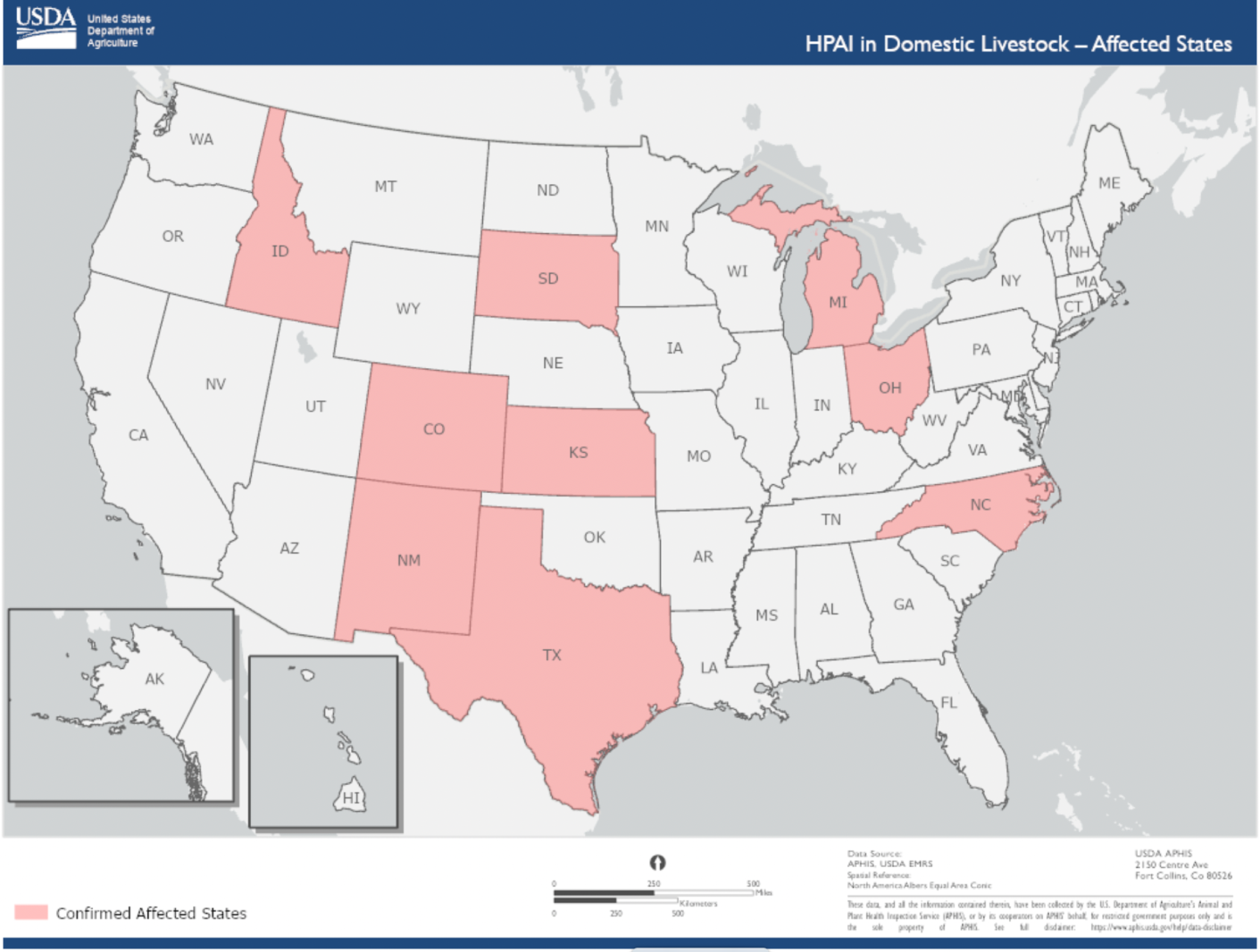North Dakota
Several North Dakota airports awarded $4 million for repair and construction

(WDAY Radio) — The FAA has awarded a four-million-dollar grant to several airports in North Dakota.
Grand Forks Regional Airport, Dickinson Municipal Airport, and Cavalier Municipal Airport will all get money. The money will be used to rehabilitate and maintain runway pavement, clean up debris, and reconstruct and repair buildings on airport property.

North Dakota
Augustana & Southwest Minnesota State head to North Dakota for NSIC Baseball Tournament

SIOUX FALLS, S.D. (Dakota News Now) – The Augustana Vikings and Southwest Minnesota State Mustangs will look to earn their way into the 2024 NCAA Division Two Central Region Tournament via winning the NSIC Tournament starting Wednesday in North Dakota.
The event is split between two sites at Municipal Ballpark in Bismarck and Veterans Memorial Stadium in Mandan before finishing up in Mandan with the championship games on Saturday, May 11th.
Regular season champion Augustana (41-8, 32-6 NSIC) opens the tournament on Wednesday in Mandan against Concordia-St. Paul (27-20, 19-19 NSIC) at noon. The Vikings won all three regular season meetings between the teams in Sioux Falls April 20-21. Ranked fourth in the NCAA’s Central Region Augustana is all but a lock to make the NCAA Tournament regardless of this week’s NSIC Tournament outcome.
SMSU (26-22, 20-19 NSIC) will also get underway on Wednesday in Bismarck against UM-Crookston (34-14, 28-10 NSIC) at 6:00 PM. In their regular season series the Mustangs lost two out of three in Crookston, splitting a doubleheader on April 13th (dropping the first game 8-0 before bouncing back to win game two 12-2) and dropping a slugfest rubber game 18-11.
For a look at the complete bracket and schedule click HERE .
Copyright 2024 Dakota News Now. All rights reserved.
North Dakota
North Dakota raw milk producers cautious as federal authorities raise concerns

BISMARCK — Raw milk from North Dakota dairy cows carries a low risk of avian flu contamination, local producers say, but they are still increasing precautions.
The so-called bird flu has been detected in dairy cows in nine other states,
including South Dakota,
and the Food and Drug Administration has advised against drinking raw milk.
This issue comes less than a year since
the North Dakota Legislature lifted a rule against selling raw milk in the state,
though sales can only be at the direct consumer level, not to wholesale or retail outlets or across state lines.
There are currently about two dozen raw milk producers in the state.
One is Peter Bartlett of Bartlett Farms, Bottineau, who said he received a cautionary notice from the North Dakota Milk Producers Association. The notice advised caution when buying cows and to keep a close watch for illness in the herd. He said customers are not deterred.
“A pasture-based farm that’s not confining its animals in more close confinement like a conventional dairy would be a lot less susceptible,” Bartlett said.
Bartlett said he already follows three levels of safety protocols to ensure the health of his cows.
Since the restrictions were eased on sales of raw milk last year, Bartlett has seen a steady and growing interest from consumers.
“In the past six months, we seem to have had almost twice as many inquiries about milk,” he said. “So that’s a good sign. I think that now that the law passed, people look at it as a valid option.”
Ty Petersen of Bev’s Best Dairy, Monango, agrees that larger dairy farms with confined cows are more at risk from transmission and that smaller operators have a better grip on the health of individual animals.
He said he isn’t greatly concerned about avian influenza infecting his cows.
“Just being a fussy producer helps a lot, that’s a big part of it, and you know just being around them cows all day you notice stuff lickety split.”
Ava Brokaw of Brokaw Ranch, Kulm, said she is very meticulous about the cleanliness of her cows and quality of her raw milk.
“If I question anything, I dump it,” she said. “I would never sell anything where I questioned whether my cow was sick or not.”
Brokaw said she’s had “a ton of people reach out” since the restrictions were lifted, and people should do their research on whatever it is they are consuming.
“I’ve got kids and I want to make sure that everything that I’m giving them is good, you know, so I read up on the risks on it,” Brokaw said. “But for us, we’ve had more problems with store-bought milk than raw milk.”
North Dakota’s Department of Agriculture regulates production of pasteurized milk, but not raw milk.
The North Dakota Department of Health and Human Services can only offer guidance, according to Heather Steffl, communications manager of the Public Health Division.
“Pasteurization is the safest choice,” Steffl wrote in response to an inquiry from the North Dakota News Co-op.
State veterinarian Ethan Andress said consuming raw milk has “inherent risks” aside from the possible transmission of highly pathogenic avian influenza.
“There are organisms that contaminate raw milk that have the potential to cause people to get sick and occasionally die.” He said it’s the same risk for all raw food, from oysters to meat.
Andress advised raw milk producers to minimize contact with wild birds and to ensure feed is protected from exposure to wild birds because it is hard to know if they are infected.
Milk production is a key indicator of a cow’s health. “The most common sign (of illness) is a drop in milk production,” Andress said.
But even with precautions, some infected cows may not show signs of sickness.
“I think the most frustrating part of this is the asymptomatic part, that some of these cows have an infection but aren’t getting sick,” Andress said. “Just like people when we get influenza, you have varying levels of how bad people get sick and the same thing occurs in cows.”
The closest the avian influenza virus H5N1 has been found in dairy cows is in South Dakota. Other states where it was detected are Colorado, Idaho, Kansas, Michigan, New Mexico, North Carolina, Ohio and Texas.
There have been no cases of avian influenza detected in North Dakota, according to the North Dakota Department of Agriculture. Most cases from 2023 occurred in the fall.
Transmission risks still undetermined
Federal officials believe the virus is spreading among cows due to contact with milk from other infected cows but that further testing is needed.
It is also unknown if humans can contract the virus through consuming raw milk from infected cows.
Pasteurization of milk inactivates the virus, according to the FDA. The agency has tested commercially produced pasteurized milk and other dairy products in 38 states and found no live, infectious virus in pasteurized milk.
A recent study published by the Center for Disease Control and Prevention found that cats that consumed raw milk from avian influenza-infected cows became sick and some died.
Dr. Angela Rasmussen, a virologist at the Vaccine and Infectious Disease Organization at the University of Saskatchewan in Canada, told NDNC that while “we don’t know if people can get H5N1 from drinking raw milk,” due to the high levels of viral loads, “it’s very much a possibility.”
Animals such as cats, dogs, and bears that eat dead birds have gotten diseased, and some died, from that consumption, Rasmussen said.
An FDA statement from May 1 said the agency is continuing to test samples of pooled raw milk routed to pasteurization and processing for commercial use. The FDA “advises strongly” against consuming raw milk and recommends the industry does not manufacture or sell raw milk or raw milk products.
The FDA has also recommended that precautions be taken when discarding milk from infected cows so it does not become a source of further spread.
This story was originally published on NewsCoopND.org
______________________________________________________
This story was written by one of our partner news agencies. Forum Communications Company uses content from agencies such as Reuters, Kaiser Health News, Tribune News Service and others to provide a wider range of news to our readers. Learn more about the news services FCC uses here.
North Dakota
Burgum orders flags at half-staff for fallen firefighters

BISMARCK — North Dakota Gov. Doug Burgum has ordered flags be flown at half-staff Sunday, May 5, in honor of fallen firefighters.
Burgum proclaimed Saturday and Sunday as Fallen Firefighters Memorial Weekend in the state. There are more than 300 volunteer and career fire departments in North Dakota “staffed by dedicated men and women selflessly serving their neighbors in times of need,” he said in a release.
Homeowners and businesses are encouraged to join government agencies in flying their flags at half-staff, the release said.
Our newsroom occasionally reports stories under a byline of “staff.” Often, the “staff” byline is used when rewriting basic news briefs that originate from official sources, such as a city press release about a road closure, and which require little or no reporting. At times, this byline is used when a news story includes numerous authors or when the story is formed by aggregating previously reported news from various sources. If outside sources are used, it is noted within the story.
-

 Politics1 week ago
Politics1 week agoColumbia University’s policy-making senate votes for resolution calling to investigate school’s leadership
-

 News1 week ago
News1 week agoBoth sides prepare as Florida's six-week abortion ban is set to take effect Wednesday
-

 World1 week ago
World1 week agoBrussels, my love? MEPs check out of Strasbourg after 5 eventful years
-

 Politics1 week ago
Politics1 week agoHouse Republicans brace for spring legislative sprint with one less GOP vote
-

 News1 week ago
News1 week agoPro-Palestinian campus protesters face looming deadlines and risk of arrest
-

 Politics1 week ago
Politics1 week agoRepublican makes major announcement in push to grow GOP support from once-solid Dem voting bloc
-

 Politics1 week ago
Politics1 week agoGOP Rep. Bill Posey won't seek re-election, endorses former Florida Senate President as replacement
-

 World1 week ago
World1 week agoAt least four dead in US after dozens of tornadoes rip through Oklahoma















